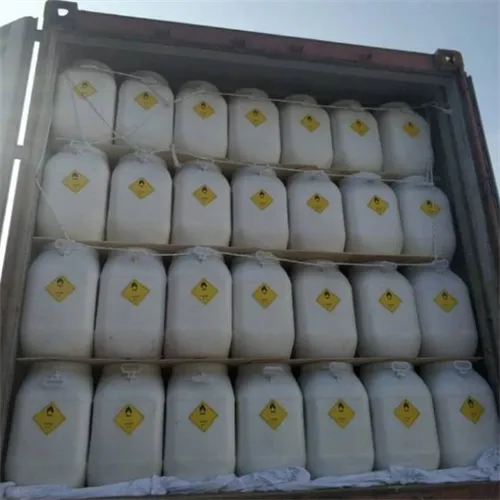Warning: Undefined array key "title" in /home/www/wwwroot/HTML/www.exportstart.com/wp-content/themes/1198/header.php on line 6
Warning: Undefined array key "file" in /home/www/wwwroot/HTML/www.exportstart.com/wp-content/themes/1198/header.php on line 7
Warning: Undefined array key "title" in /home/www/wwwroot/HTML/www.exportstart.com/wp-content/themes/1198/header.php on line 7
Warning: Undefined array key "title" in /home/www/wwwroot/HTML/www.exportstart.com/wp-content/themes/1198/header.php on line 7
- Afrikaans
- Albanian
- Amharic
- Arabic
- Armenian
- Azerbaijani
- Basque
- Belarusian
- Bengali
- Bosnian
- Bulgarian
- Catalan
- Cebuano
- China
- China (Taiwan)
- Corsican
- Croatian
- Czech
- Danish
- Dutch
- English
- Esperanto
- Estonian
- Finnish
- French
- Frisian
- Galician
- Georgian
- German
- Greek
- Gujarati
- Haitian Creole
- hausa
- hawaiian
- Hebrew
- Hindi
- Miao
- Hungarian
- Icelandic
- igbo
- Indonesian
- irish
- Italian
- Japanese
- Javanese
- Kannada
- kazakh
- Khmer
- Rwandese
- Korean
- Kurdish
- Kyrgyz
- Lao
- Latin
- Latvian
- Lithuanian
- Luxembourgish
- Macedonian
- Malgashi
- Malay
- Malayalam
- Maltese
- Maori
- Marathi
- Mongolian
- Myanmar
- Nepali
- Norwegian
- Norwegian
- Occitan
- Pashto
- Persian
- Polish
- Portuguese
- Punjabi
- Romanian
- Russian
- Samoan
- Scottish Gaelic
- Serbian
- Sesotho
- Shona
- Sindhi
- Sinhala
- Slovak
- Slovenian
- Somali
- Spanish
- Sundanese
- Swahili
- Swedish
- Tagalog
- Tajik
- Tamil
- Tatar
- Telugu
- Thai
- Turkish
- Turkmen
- Ukrainian
- Urdu
- Uighur
- Uzbek
- Vietnamese
- Welsh
- Bantu
- Yiddish
- Yoruba
- Zulu
Jul . 27, 2024 00:57 Back to list
Comprehensive Guide to Aspartame Safety, Uses, and Health Effects in Daily Consumption
Aspartame An Overview of Its Use, Safety, and Controversy
Aspartame is one of the most widely used artificial sweeteners in the world. Often found in various food and beverage products, it is approximately 200 times sweeter than sucrose (table sugar), making it a popular choice for those looking to reduce their sugar intake without sacrificing sweetness. Aspartame is commonly found in diet sodas, sugar-free gum, low-calorie desserts, and even some medications, appealing particularly to the health-conscious community and those managing conditions like diabetes.
Composition and Mechanism
Chemically, aspartame is a dipeptide methyl ester composed of two amino acids phenylalanine and aspartic acid, along with a methanol molecule. When consumed, aspartame is broken down by the body into these components, which are naturally occurring in many proteins. The sweetening effect of aspartame is due to its structure, which binds to sweetness receptors on the tongue. This allows manufacturers to use much smaller amounts of aspartame compared to sugar, contributing to lower calorie counts in food products.
Safety Assessments
Since its approval by the U.S. Food and Drug Administration (FDA) in 1981, aspartame has undergone extensive safety evaluations. Regulatory agencies around the world, including the European Food Safety Authority (EFSA) and the World Health Organization (WHO), have affirmed that aspartame is safe for human consumption at established acceptable daily intake (ADI) levels. The ADI for aspartame is set at 40 mg per kilogram of body weight in Europe and 50 mg in the United States.
aspartame information

However, individuals with a rare genetic disorder called phenylketonuria (PKU) must avoid aspartame, as their bodies cannot metabolize phenylalanine effectively, leading to dangerous accumulations in the body. For the general population, research has not demonstrated any significant health risks associated with aspartame consumption within the FDA's established safety limits.
Public Controversy and Misinformation
Despite extensive research supporting its safety, aspartame has been at the center of numerous controversies and conspiracy theories. Some critics claim it can cause a variety of health issues, ranging from headaches and migraines to more serious ailments like cancer. Most of these claims have been debunked by scientific reviews, which consistently find no credible evidence linking aspartame to serious health hazards.
Social media and anecdotal reports have perpetuated misunderstandings, leading some consumers to shun aspartame in favor of other sweeteners. Natural sweeteners, such as stevia or monk fruit extract, have gained popularity as alternatives, often marketed as healthier options. Nevertheless, the availability of diverse sweeteners gives consumers the freedom to choose according to their preferences and dietary needs.
Conclusion
Aspartame remains a critical ingredient in the food and beverage industry, particularly amid rising concerns over sugar consumption and obesity. With extensive scientific research validating its safety, aspartame allows consumers to enjoy sweetened products with fewer calories. As public interest in health and wellness continues to evolve, informed choices based on evidence rather than misconceptions will play a significant role in shaping consumer behavior. Aspartame is an integral part of this equation, showcasing the ongoing balancing act between taste, health, and safety in today's food landscape.
Latest news
-
Certifications for Vegetarian and Xanthan Gum Vegetarian
NewsJun.17,2025
-
Sustainability Trends Reshaping the SLES N70 Market
NewsJun.17,2025
-
Propylene Glycol Use in Vaccines: Balancing Function and Perception
NewsJun.17,2025
-
Petroleum Jelly in Skincare: Balancing Benefits and Backlash
NewsJun.17,2025
-
Energy Price Volatility and Ripple Effect on Caprolactam Markets
NewsJun.17,2025
-
Spectroscopic Techniques for Adipic Acid Molecular Weight
NewsJun.17,2025

